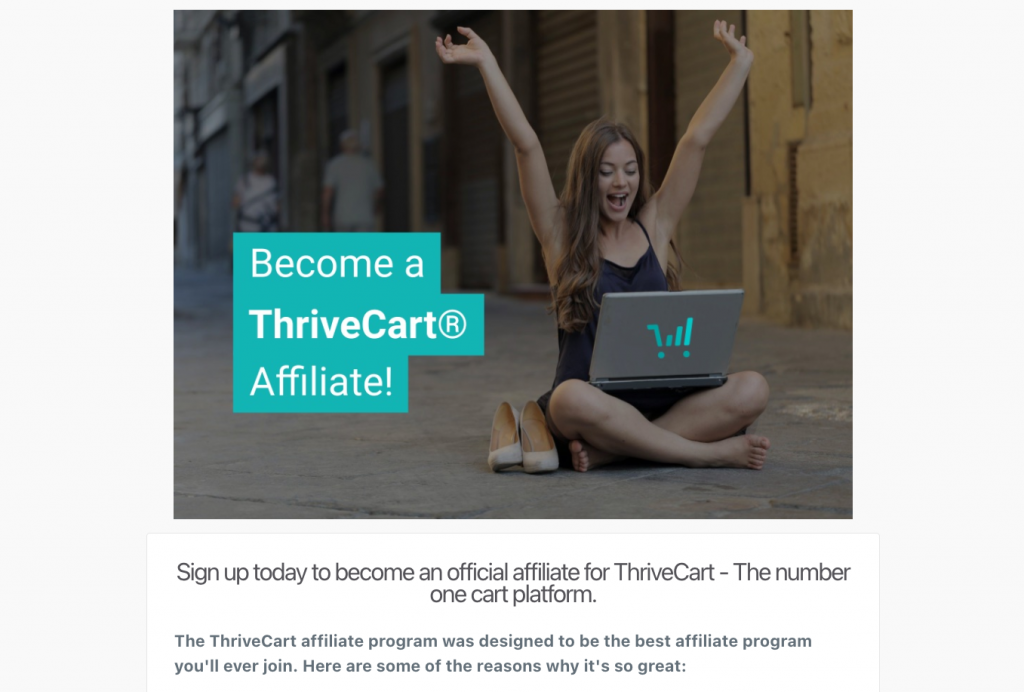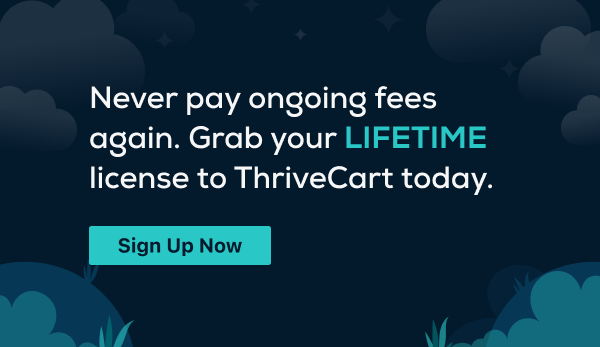E-commerce websites frequently use affiliate marketing as part of a comprehensive digital marketing strategy to increase conversion rates, reach new target audiences, and improve and expand their brand.
According to a Forrester report commissioned by Rakuten, 81% of advertisers and 84% of publishers use affiliate marketing. And over half of the affiliate publishers surveyed in the same report stated that affiliate marketing accounted for more than 20% of their annual revenue, which is phenomenal for a mostly passive income stream.
Today, we’ll explore ten top affiliate marketing examples and what you can learn from them to improve your own affiliate strategy.
What is Affiliate Marketing?
An affiliate marketing program is a partnership between a parent company and an affiliate partner. The parent company rewards affiliate partners for a referral’s specific action, such as a new customer sign-up or a product purchase. Because the affiliate earns a commission and the company benefits from increased exposure and sales, it’s a win-win for both parties.

Online retailers whose sites meet at least one of the following criteria are well-poised to launch successful affiliate marketing programs:
- Consistently high sales volume: leverage the existing network of customers to become affiliates and promote their products to a wider audience.
- Focus on niche products: partnering with affiliates with a highly targeted audience can increase the visibility of the retailer’s products to potential customers who may not have found them otherwise.
- Operate with a limited advertising budget: benefit from affiliate programs that only pay for advertising when a sale is made. This is especially true for small businesses and startup companies.
The standard affiliate marketing lifecycle operates as follows:
- The parent company decides what products are part of the program, sets or re-evaluates program goals, and sets or updates a commission structure for the affiliate program.
- The parent company builds training resources and a library of materials for affiliates to use. This can include logos, product photos, branding guidelines and design rules, templates, webinars, and step-by-step tutorials.
- The affiliate takes that information and creates its own marketing campaigns to promote the parent company’s products. Many affiliates do this via social media posts, blog posts that have undergone search engine optimization (SEO), email marketing, etc.
- The parent company recruits and manages affiliate efforts, shares commission structures, creates individual coupon and discount codes as needed, tracks referrals and conversions, and oversees commission payouts.
- The parent company reviews its goals they set in step 1 and begins the cycle again.
Effective Promotion Tactics Used by Affiliates
The affiliates you work with will likely have their own favorite methods for sharing your products—this could come in the way of video blogging (also known as vlogging) or sharing live-streaming videos on social media. Those who are more camera shy may prefer to post standard blogs or email marketing campaigns to promote your brand. Let’s take a look at the most commonly seen promotional tactics affiliate marketers use.

Social Media & Influencer Marketing
These days, anyone can be an influencer. And the more influence a person has, the more products they can sell as an affiliate partner.
Often, influencers take to social media to promote a company’s products or services to their followers. This type of affiliate marketing relies on the influencer’s personal brand and ability to connect with their audience.
Because influencers have a significant following on social media platforms such as their YouTube channel, podcasts, and Instagram, TikTok, and Twitter accounts, they use those platforms to promote their affiliate publishers. YouTubers are especially important to this affiliate strategy, as YouTube continues to be the most popular influencer channel with creators generating quality content to back up their affiliate links.
According to Kinsta, 59% of companies use influencers for their affiliate marketing efforts, making it a popular strategy for businesses looking to expand their reach and increase sales.
Email Marketing
Email marketing is a powerful tool for affiliate marketing as it allows affiliates to communicate with their audience in a direct and personalized way. Through email marketing, affiliates can share valuable content, promote products, and offer exclusive deals and discounts to their subscribers. But, affiliates need to take special care to provide value to subscribers and avoid over-sending emails. Sending too many emails can lead to subscribers feeling annoyed or “spammed” and eventually unsubscribing, which can harm the success of an affiliate marketing campaign.
One effective way for email marketing affiliates to partner with a SaaS business is by promoting their services and offering exclusive deals to their subscribers. This can not only help to increase sales for the SaaS business but also strengthen the relationship between the affiliate and their audience. For example, bloggers who write about SaaS products may publish a whitepaper or product overview that requires email signup. Their email system automation will then send out the resource to the subscriber without human intervention. This helps grow the blogger’s email list for future communication efforts.
According to Omnisend, email marketing’s return on investment is excellent, with a $40 return on every $1 spent on email marketing. Campaign Monitor reports that the highest affiliate revenue from email marketing is from software and downloadable assets — up to 15%.
Product Review Blogs/Websites
Product review websites have become popular over the last decade as places consumers can visit to make informed purchasing decisions. With so many options in the market, consumers are looking for the best option, and product review sites provide that kind of insight.
Product review websites often partner with companies or affiliate networks to generate revenue. This partnership works by the site earning a commission on sales through their unique affiliate link. For example, a review site that evaluates software might provide an affiliate link to the software company’s website. When a reviewer clicks on that link and makes a purchase, the review site earns a commission.
One final word about product review sites: It is important for a site to disclose if they are using affiliate links in a disclaimer such as, “This website may use affiliate links, and we may receive a commission payment if you click on any of the links from our website.”
Sites may disclose whether affiliate links or “sponsored links” affect rating listings or not. Consumers will likely trust review sites that display products based solely on review rankings over those that may be manipulated to promote affiliates.
10 of the Best Affiliate Program Examples to Inspire Your Own
Whether you’re a beginner or a seasoned pro when it comes to the strategic development of an affiliate marketing program, you can learn a lot by looking at how some of the top affiliate marketing programs operate. Today, we’ll look at ten examples of affiliate marketing partner programs to review their strategies for growing conversion rates and acquiring new customers at a low cost.
1. ThriveCart

ThriveCart is a leader in conversion optimization for anyone selling anything online. ThriveCart users build highly targeted and strategic marketing funnels to lead users down a clear path to purchase, all while showcasing upsell and downsell offers that increase average purchase totals.
Why do affiliates care? Well, because ThriveCart can be used for virtually any online store, that makes millions of potential customers… and plenty of opportunity for an affiliate to introduce their entrepreneur followers with this conversion software tool.
It helps that ThriveCart’s affiliate program has one of the largest commission payouts in the affiliate marketing space, with commissions of up to 50% and more than $3 million paid to affiliates since launching their affiliate program.
Commission rate: 50%
Cookie life: Lifetime with last click attribution
Payment frequency & method: One-time commission payout through PayPal for each referral
2. Amazon Associates

Amazon’s affiliate program, Amazon Associates, is one of the largest affiliate networks in the world. With millions of products to choose from on Amazon.com, affiliates can search for products that are part of the affiliate program and that their followers would find useful or interesting, then promote as many or as few as they’d like. The program is very loosely structured, allowing Amazon affiliates plenty of opportunities to continue sharing new products with their followers.
Commission rate: Varied between 1% and 20% depending on product category
Cookie life: 24 hours
Payment frequency & method: Monthly via check, Amazon gift card, or direct deposit to your bank account
3. Hubspot

All of HubSpot’s marketing, sales CRM, customer service, CMS, and operations software are commissionable as part of Hubspot’s affiliate program. As one of the most popular cloud-based business management suites, its high-value payout (on average, $276 per referral) is an excellent option for business bloggers.
Commission rate: For each new referral, earn 100% of first month revenue or 15% of their monthly revenue for up to one year
Cookie life: 90 days
Payment frequency & method: Monthly via direct deposit or PayPal
4. Shopify

Gone are the days where you needed extensive graphic design and programming experience to launch an online eCommerce website. This makes the Shopify affiliate program appealing to entrepreneurs and content creators as an e-commerce platform for small businesses.
To qualify for Shopify’s affiliate program, affiliates must own and run their own active website, have an established audience, create original content, such as online courses, seminars, blog posts, or videos, have experience with Shopify or other e-commerce platforms, and agree to the Shopify terms and conditions.
Commission rate: $150 fixed bounty per each full price (non-promotional) qualified referral
Cookie life: 30 days
Payment frequency & method: Biweekly or when earnings reach a certain amount; paid via direct deposit or Paypal
5. BigCommerce

BigCommerce is another e-commerce provider aimed at mid-to-enterprise-sized companies, and their affiliate program’s high commission rates reflect this. For larger companies with the need for more advanced integration features such as multiple storefronts and order management, BigCommerce may be an ideal choice.
Commission rate: $1.50 for registration, $40 for each enterprise lead, $1,500 per enterprise sale
Cookie life: 90 days
Payment frequency & method: Monthly via PayPal
6. ConvertKit

ConvertKit is a web-based app suite of marketing tools for creators to monetize their content through e-mail marketing automation. Publishers who target niche audiences including coaches, authors, podcasters, and musicians are a good fit for ConvertKit’s affiliate program.
Once signed up, partners can log onto their affiliate website dashboard to access a training course, graphics and video assets, webinars, and a dashboard to track conversions.
Commission rate: 30% monthly recurring commission for 24 months
Cookie life: 90 days
Payment frequency & method: Monthly via PayPal
7. Skillshare

Subscribers to Skillshare get unlimited access to thousands of classes on just about anything you can think of, from crafts and cooking to web design and entrepreneurship.
Skillshare targets entrepreneurs and freelancers who work on their own and need to build their skills. In today’s post-COVID world, where so many more young people are choosing to work from home and turn their side gigs into a self-driven career, affiliate marketers have a wide audience to promote Skillshare to—and potentially earn big.
Commission rate: 40% up to $67, for every new customer referred
Cookie life: 30 days
Payment frequency & method: Monthly, via your preferred payment format
8. Elementor

Elementor is a leading website builder platform for professionals on WordPress. Elementor serves web professionals, including developers, designers, and marketers. It features drag and drop functionality for web design. Users can select from an extensive library of 100+ full website kits or start with a blank canvas. Elementor also offers web hosting which is commissionable.
Elementor’s affiliate program targets include content creators, web educators, digital entrepreneurs, WordPress developers, and marketing agencies.
Commission rate: Up to 50% commission per activation
Cookie life: 90 days
Payment frequency & method: 30 days post-referral via Paypal
9. Fiverr

Fiverr is a global online marketplace for freelance services. Fiverr’s platform connects freelancers to people or businesses looking to hire. Listings on Fiverr are diverse and range from “get a well-designed business card” to “help with HTML, JavaScript, CSS, and jQuery.” That makes the Fiverr affiliate program ideal for creators who provide resources to entrepreneurs, startups, etc.
Commission rate: $15-$150 per referral, or $10 per referral plus 10% revenue share over 12 months
Cookie life: 30 days
Payment frequency & method: Monthly, as long as payouts have reached the $100 minimum. Payouts of $999 or less are paid via PayPal/Payoneer, while payouts of $1,000 or more are paid via wire transfer
10. Typeform

Typeform is an online platform that allows users to create and customize interactive surveys, questionnaires, forms, and quizzes. It is designed to provide a more engaging and conversational way to collect information from users, compared to traditional web forms. It offers a variety of templates for feedback forms, surveys, applications, evaluations, etc. making it an ideal affiliate program for business consultants, web developers, marketing agencies, and consultants.
Commission rate: $20 per sign up
Cookie life: Typeform uses referral links without cookies for referral attribution.
Payment frequency & method: Monthly via PayPal or Stripe
What Makes an Affiliate Marketing Program Great?
As you build your company’s affiliate marketing strategy, you now have some excellent examples to consider when building out your plan. The right strategy can increase sales and revenue, potential new customers, and a substantial passive income. The examples above are a great way to get inspired and see how affiliate partnerships work.
Commonalities we see among these examples that make them great programs are:
- Easy-to-understand commission rates. Except Amazon, a massive affiliate program that justifies the use of multiple selling categories and rates, all the sites listed have a very simple one or two-option commission and payout structure.
- Quality products or services. Each site has a well-respected, user-tested product/service offering.
- Marketing materials. Each affiliate program provides marketing materials and content for affiliates to promote. They also provide rules for affiliates around the language they can and cannot use in promoting an affiliate link.
- Dashboard tracking and reporting. Each affiliate partner provides an easy-to-interpret dashboard, including the number of clicks an affiliate link has referred, total conversions, and prospective payout values.
While building an affiliate program from scratch may sound like a big job, each of these four elements are quite manageable for any business owner. Even more so when you have an affiliate management tool backing you up — and ThriveCart, one of the great affiliate program examples mentioned above, can help.
In addition to ThriveCart’s own affiliate program, the software itself enables users to optimize their websites for more conversions. Even better, it offers users an affiliate management platform to create and manage your own affiliate program. ThriveCart’s affiliate management tools allow you to select products for affiliates to promote, create an affiliate program sign-up page, set up personalized affiliate partner dashboards, make marketing and training materials available, create affiliate coupon codes and personalized links, and — above all else — track all of these efforts in one easy view.
ThriveCart is also the only affiliate management system with a one-time fee and lifetime license.
So, if you’re looking into affiliate marketing as a business strategy, ThriveCart’s affiliate management tool can help make it easy while boosting your own sales conversions at the same time.





